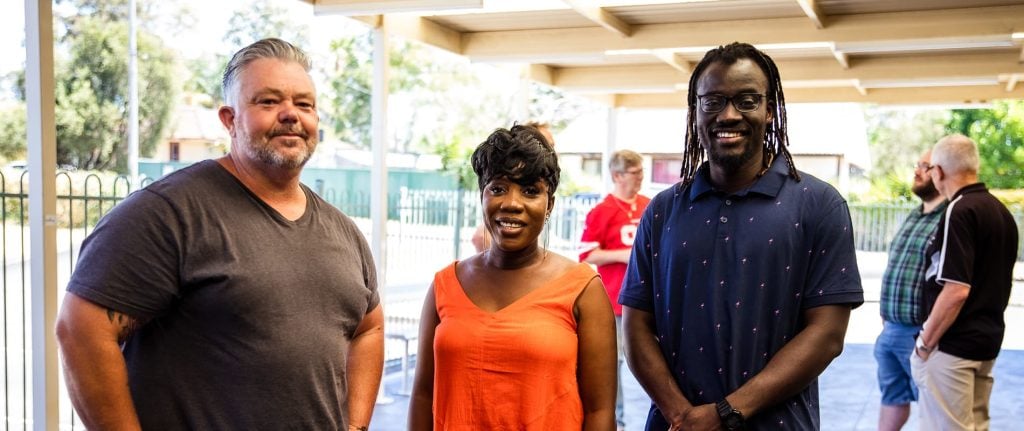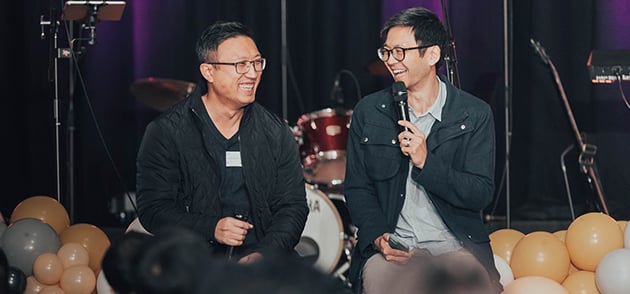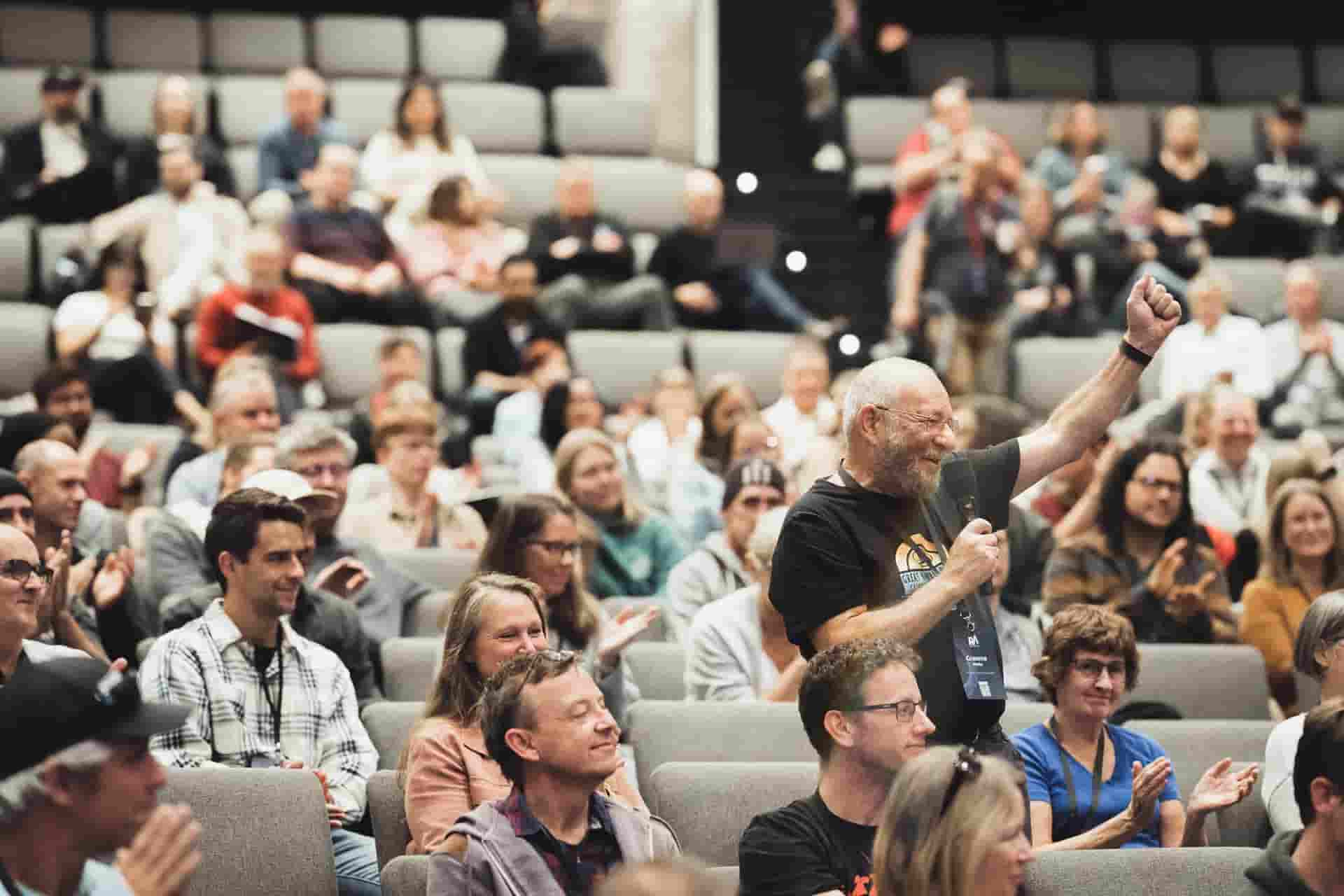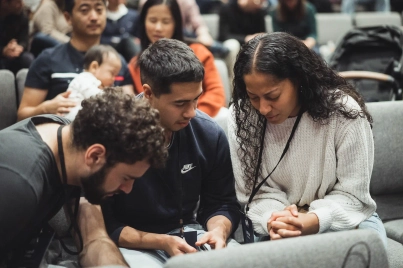An interview with Derek Hanna and Coz Crosscombe on how God’s been at work, plus the systemic problems in our training paths for church planters. Derek Hanna is the Director of Church Planting at Reach Australia and Coz is the Project Director for The Well Training.
Where are you seeing God working in church planting across Australia at the moment?
Derek: One of the most significant things we’re facing in churches across Australia is a leadership shortage. New partnerships are emerging to raise leaders to do new things that will reach new people.
A few examples that come to mind is Providence Bayswater in Perth who have opened up their doors to college students to see the inner workings of a new plant, preparing them with experience and tools if they move towards planting – it’s cross-denominational, and for the good of the gospel across Perth.
Or I look at Laneway Church in Footscray, Melbourne who have had Quan Ha as a planting resident for the past 2 years to prepare him to launch a church in 2024 to reach second generation Vietnamese.
Or finally, the partnership between Alex Purnomo at Doonside Anglican who is working with Kirit Christian as he seeks to reach Gujarati speaking Australians in Sydney.
If we’re going to reach different people, we need to identify and support different types of leaders.
How is Reach Australia supporting church planting in marginalised communities?
Derek: Church planting in marginalised places has particular challenges, approaches and skills that differ from other contexts. For the past few years we’ve been working alongside Coz and The Well to learn from and support them as they identify and raise up leaders and planters, equipping them for working in marginalised communities.
What’s a marginalised community?
Coz: We use the term to describe communities that have been pushed outside the core of a society. They are communities that have most often been under-resourced or segregated in some way, where the strengths of the people are not held in esteem as much by general society. Often they are communities where there are high rates of poverty, low levels of formal education, high levels of policing or a lack of accessibility to affordable transportation.
We wrestled for a while with what term to use. We didn’t like terms like ‘socially disadvantaged’ because often poorer communities have real social advantages and a culture of generosity. Our people give comparatively the same amount to their church, or even more, per person.
What’s The Well?
Coz: The Well develops leaders in marginalised communities to launch new gospel work, enhance existing work and finds solutions for complex systemic issues. We’ve got 11 trainees representing eight different cultural groups and ethnicities.
No one, and I really do mean no one, is planting churches at any substantial rate in marginalised communities and contexts. Can we work together to plant churches in Sydney’s poorest communities where almost no churches exist?
How is The Well different from Bible colleges?
Coz: Most of our trainees have tried theological education and found that it didn’t work in the style that it was delivered in. Sometimes it was a language issue, sometimes it was just a feeling. For example, we had one student who went to a Bible college and was at the bottom of the class. He felt like he wasn’t good enough to be a pastor because he wasn’t getting good results on his essays. We’ve adapted to how he learns and he’s working in his own community. Now he’s flourishing.
We’re student driven, so it’s our job to figure out how individual students learn, and remove all the barriers that stop them from being phenomenal in their ministry, rather than their job to figure out how we mark and grade.
We allow a huge range of ways that students can demonstrate their competencies. How do we take a syllabus from Moore College and hit the learning objectives, but from a completely different direction? Rather than writing an essay or taking an exam, they can turn in a sermon that they preach, give us a recording of a counselling session, or turn in an artwork or song.
The Well trains people who understand their culture in their context. Now we’re trying to give them competencies from a scriptural aspect.
Are there systemic problems with leadership models at the moment? Why do we need another training path?
Coz: Our systems have disadvantaged the poor. The majority of Bible colleges require somebody to have a bachelor’s degree. That’s a huge disadvantage to the majority of the population in poorer communities who either haven’t had access to that or just don’t learn best that way.
Lots of training for ministry is done online, yet our communities need it in person because they don’t have internet access or don’t learn well from the screen.
We need a training path into ministry for people who learn in other systems and styles.
Tell us about someone Reach Australia and The Well is working with at the moment.
Derek: John Delezio’s been talking to Neil Scott down in Albion Park Rail Anglican (which was a church plant in a marginalised area) about what it might look like to start a new church in partnership with them in Warilla, Wollongong.
John started the journey this year of slowly seeing what effective evangelistic ministry might look like in that area. It’s an encouraging story of gospel courage and partnership driven by God’s grace.
What are your hopes for the future?
Coz: I’d like to see The Well expand beyond Sydney. We want to create a national network for those who are working in marginalised communities where they can sit at a table and share experiences. What are we learning from each other? What works and doesn’t work in different contexts?
One of our big hopes is for more local churches. People in marginalised communities tend not to travel outside their community for an English-speaking church. Our hope is that everybody can walk to a church in their neighbourhood.
Derek: We want to see hundreds more leaders raised up who are theologically driven and practically equipped to mobilise and reach the people they’re working amongst. The Well is going to be a key part of that as we look to different models, and different leaders, to reach different people.




